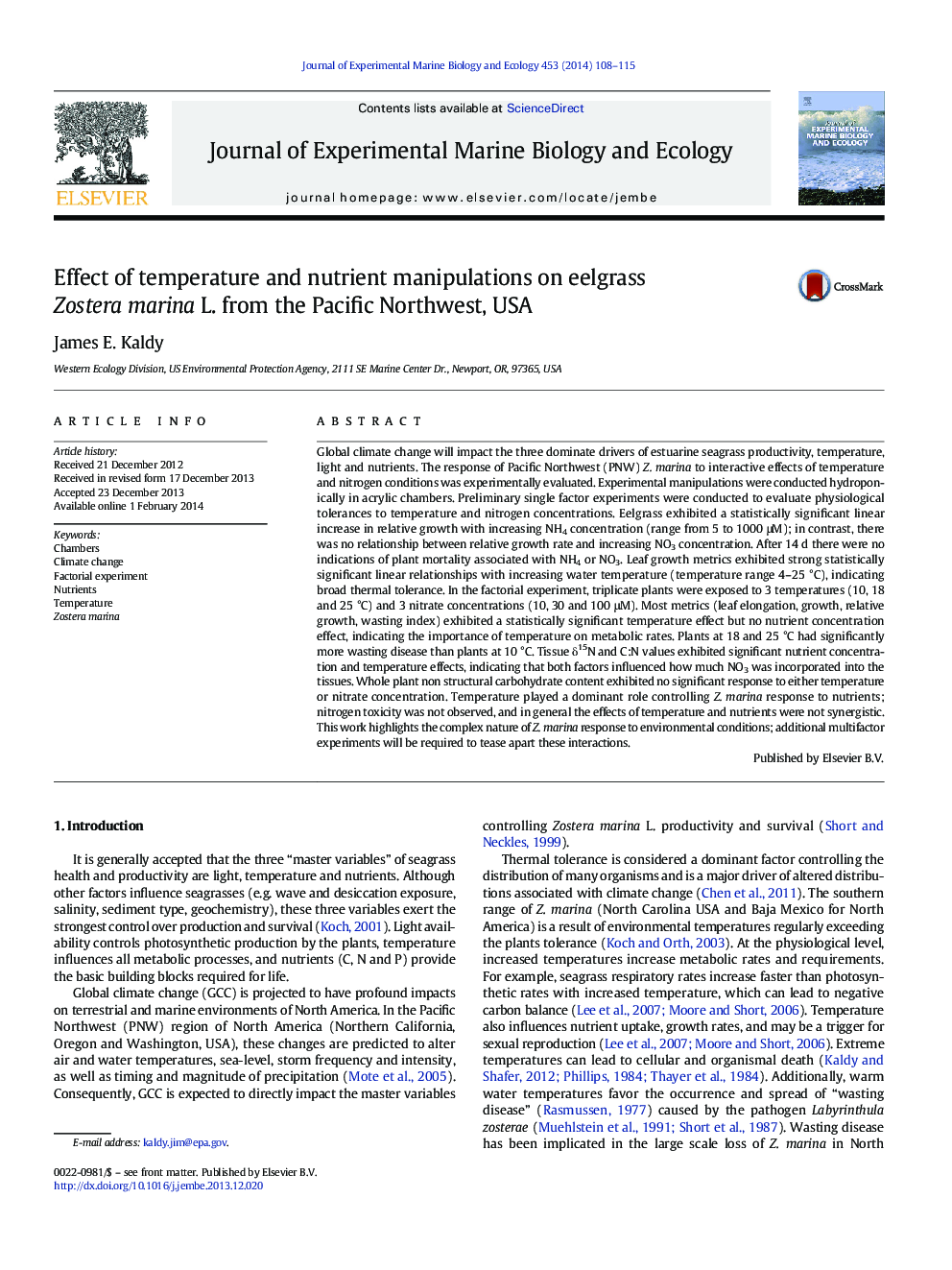| Article ID | Journal | Published Year | Pages | File Type |
|---|---|---|---|---|
| 4395581 | Journal of Experimental Marine Biology and Ecology | 2014 | 8 Pages |
•Z marina did not exhibit nitrogen toxicity•Z. marina stressed by warm temperatures may be susceptible to wasting disease•Temperature may not exacerbate Z. marina response to nitrogen loading•Pacific Northwest Z. marina may be more sensitive to climate change than nutrients
Global climate change will impact the three dominate drivers of estuarine seagrass productivity, temperature, light and nutrients. The response of Pacific Northwest (PNW) Z. marina to interactive effects of temperature and nitrogen conditions was experimentally evaluated. Experimental manipulations were conducted hydroponically in acrylic chambers. Preliminary single factor experiments were conducted to evaluate physiological tolerances to temperature and nitrogen concentrations. Eelgrass exhibited a statistically significant linear increase in relative growth with increasing NH4 concentration (range from 5 to 1000 μM); in contrast, there was no relationship between relative growth rate and increasing NO3 concentration. After 14 d there were no indications of plant mortality associated with NH4 or NO3. Leaf growth metrics exhibited strong statistically significant linear relationships with increasing water temperature (temperature range 4–25 °C), indicating broad thermal tolerance. In the factorial experiment, triplicate plants were exposed to 3 temperatures (10, 18 and 25 °C) and 3 nitrate concentrations (10, 30 and 100 μM). Most metrics (leaf elongation, growth, relative growth, wasting index) exhibited a statistically significant temperature effect but no nutrient concentration effect, indicating the importance of temperature on metabolic rates. Plants at 18 and 25 °C had significantly more wasting disease than plants at 10 °C. Tissue δ15N and C:N values exhibited significant nutrient concentration and temperature effects, indicating that both factors influenced how much NO3 was incorporated into the tissues. Whole plant non structural carbohydrate content exhibited no significant response to either temperature or nitrate concentration. Temperature played a dominant role controlling Z. marina response to nutrients; nitrogen toxicity was not observed, and in general the effects of temperature and nutrients were not synergistic. This work highlights the complex nature of Z. marina response to environmental conditions; additional multifactor experiments will be required to tease apart these interactions.
